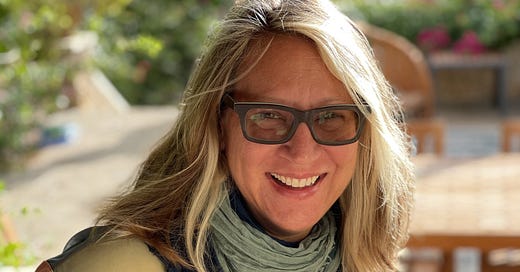The Power of Forgiveness
Rachel Louise Snyder lost her Jewish mother at 8 and was kicked out of her evangelical father's home at 16 after years of physical abuse. What she did with her life's story is instructive.
First, before we get to Rachel Louise Snyder’s story, I have some tangentially-related housekeeping. Last week, I sent out an essay entitled, “Deconstructing the Red Book,” sparked, in no small part, by the thoughts of my classmate who lived through the January 6th riots and implored us all toward de…
Keep reading with a 7-day free trial
Subscribe to Ladyparts to keep reading this post and get 7 days of free access to the full post archives.





